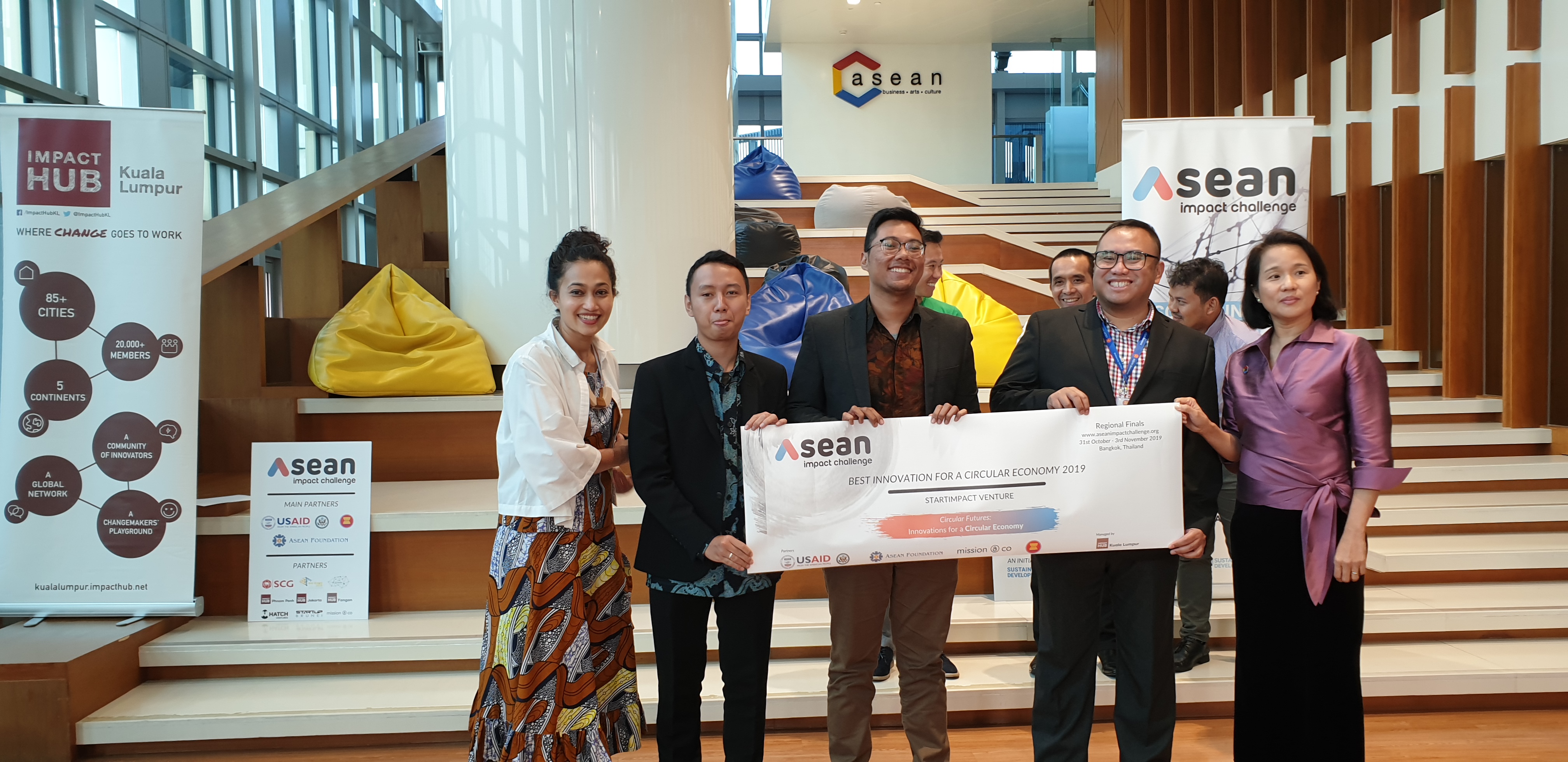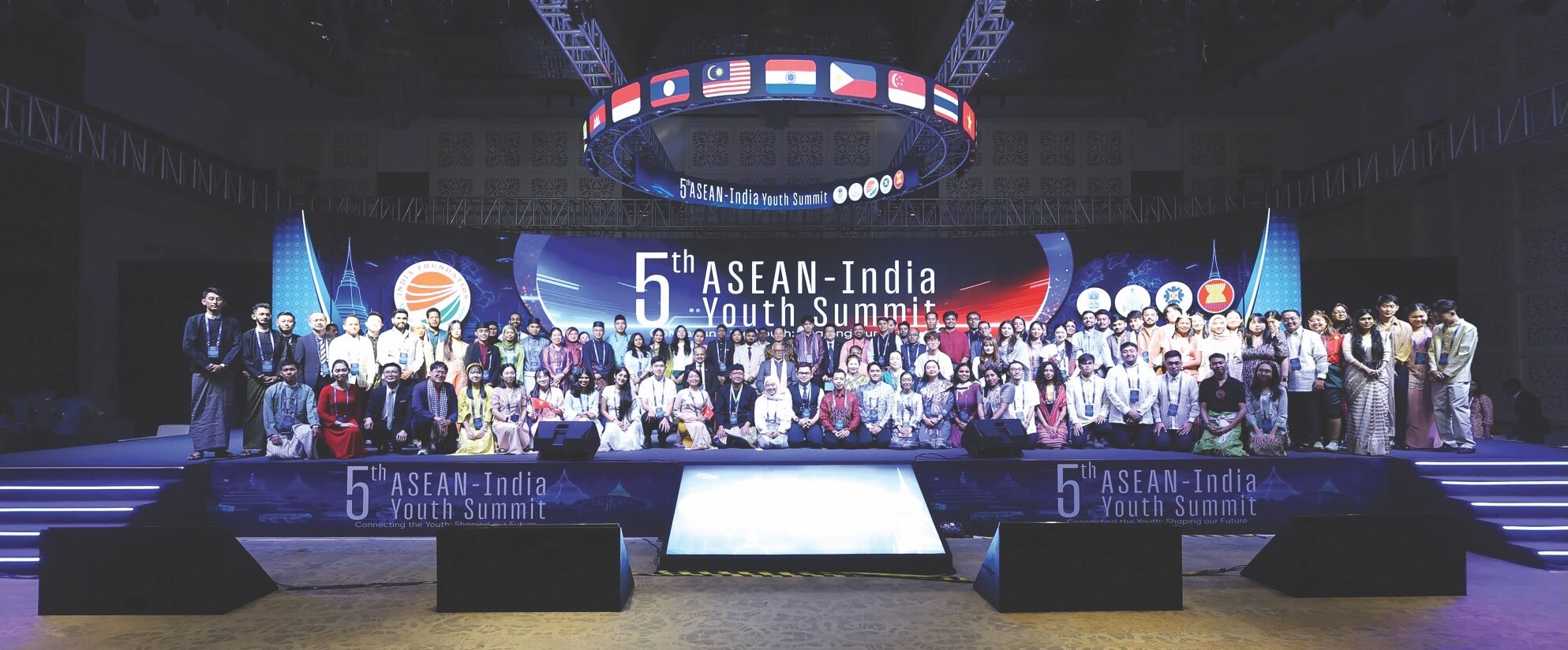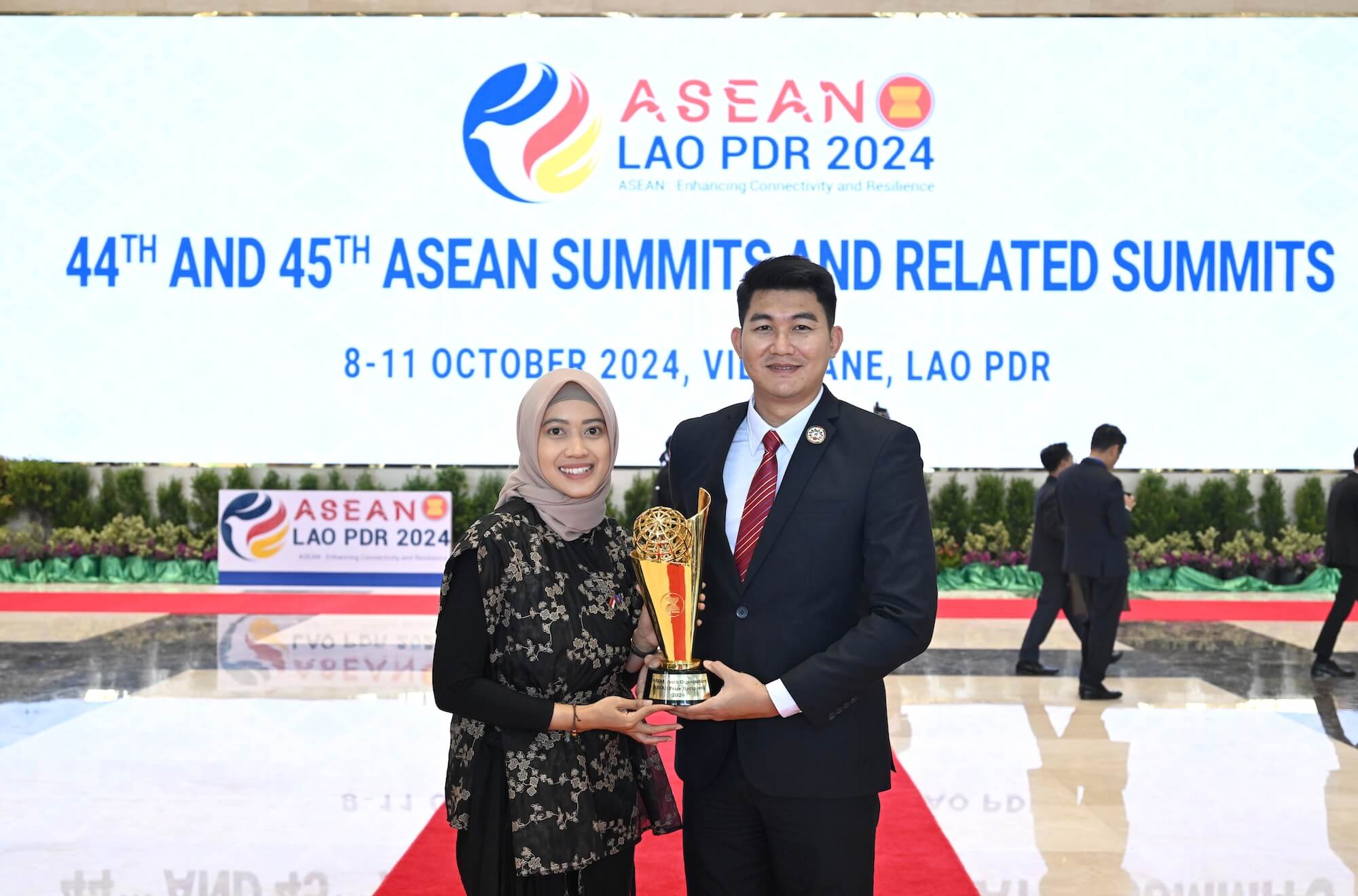



Imagine a world where economies put a premium on sustainability through the elimination of waste and the efficient use of resources. Young entrepreneurs in ASEAN are not only imagining such a world, but are also coming up with innovative ideas to take advantage of the new principle of “circular economy.”
The 2019 ASEAN Impact Challenge (AIC)—an annual programme to identify, engage, and support innovators from ASEAN—provided a platform for entrepreneurs to develop product ideas intended to build a more resilient economic system aimed at eliminating waste and reusing resources. Last year’s challenge presented opportunities to identify and strengthen innovations with proven impact, specifically targeting the achievement of the United Nations Sustainable Development Goals (SDGs). Under the theme “Circular Futures: Innovations for a Circular Economy,” the AIC emphasized future-proof innovations to promote the ASEAN development agenda and commitment to strengthening cooperation on regional and global challenges embodied by the SDGs.
Now in its 5th year, the AIC engages local partners across all 10 ASEAN Member States, inviting them to nominate innovators who have developed both early- and scale-stage innovations to participate in the challenge. Selected finalists join an intensive two-month accelerator programme, receiving mentorship through selected partners to help them prepare for the Regional Finals. Through the process, innovators are matched with multi-sector actors from government, private sector, and academia who provide guidance and support, particularly focusing on how innovations deliver on the achievement of the SDGs. The programme also facilitates cross-border collaboration among participants to build knowledge and promote a spirit of volunteerism amongst those who want to contribute to achieving the social impact that the ventures aim to achieve. At each country level, teams compete to become regional finalists where they can pitch their proven innovations and impact models.
To date, the AIC has garnered a digital reach of over 70 million impressions, discovered more than 1,000 innovations, galvanized over 80 partnerships, and awarded 60 finalist innovations. Impact Hub Kuala Lumpur, the lead organiser and host of the AIC, has both a private sector as well as social motivation. While these innovations stemming from the AIC contribute to the economies within ASEAN, they also provide a growing number of promising innovations and interventions that can change the world.
ASEAN’s Senior Officials Meeting on Youth (SOMY) in collaboration with the United States through the USAID-ASEAN Partnership for Regional Optimization within the Socio-Cultural and Political Security Communities (PROSPECT), Impact Hub Kuala Lumpur, and the ASEAN Foundation hosted the 2019 AIC Regional Finals in Bangkok on 31 October–4 November 2019. For the first time, the AIC was officially endorsed by an ASEAN body, the SOMY. It also specifically targeted young innovators or Start Impact Innovators from the region to tap into the business expertise of potential investors and pitch their sustainable business ideas—ranging from high-protein cricket powder to incentivizing recycling through a lucky draw raffle. In 2019, 20 entrepreneurs representing all 10 AMS were shortlisted to participate in the AIC Regional Finals.
To help finalists prepare to pitch their ventures to potential investors and partners, the first two days of the Regional Finals focused on skills and knowledge building, including how to effectively communicate their sustainable business concepts. The workshop featured presentations from experts on the circular economy, impact-based storytelling, scaling strategies, and how to effectively partner with private sector players. During the workshop, the 20 Start Impact innovators also had an opportunity to meet entrepreneurs from Digital Big Bang and the ASEAN Start-up Hack-a-thon, who shared practical guidance from their own successful start-up journeys.
After the workshop, on 2 November, all AIC 2019 regional finalists from both Start-Impact Innovators (early stage) and Scale-Impact Innovators (ventures older than 2 years with a minimum working capital of 100,000 US dollars) delivered demo pitches of their circular economy start-ups to a panel of judges comprised of representatives from SOMY, the United Nations Environment Programme, and the private sector. The teams also had a chance to hear from start-ups as well as established private sector players, such as Unilever and SCG, about their initiatives related to the circular economy. Panelists highlighted the importance of building trust, learning from failure, and supporting the larger circular economy and social enterprise community.
SOMY representatives who attended this workshop have stated that this type of youth social entrepreneurship platform was effective in empowering youth social entrepreneurs in their efforts to support the development of their countries. In particular, the SOMY representative from the Philippines, Mr. Juan Carlos Marquez, stated that it “was a very good opportunity for young entrepreneurs to showcase their business concepts which are innovative and sustainable. It gives recognition and drives our young entrepreneurs to do more. Continue to establish the strong involvement of SOMY in future activities.”
On 3 November, Start Impact Innovators were also invited to the first day of the 2019 World Environmental Education Congress, an international meeting point for all public and private stakeholders involved with education for environment and sustainable development. At the congress, AIC finalists pitched their concepts and connected to a wider audience of corporate social responsibility representatives, UN agencies, and universities.
AIC winners were also announced at the congress—BIOPS Agrotekno from Indonesia (Start Impact category) and Bambuhay from the Philippines (Scale Impact category). BIOPS Agrotekno is the brainchild of six young tech students, including graduates from the Institute of Technology Bandung. This agritech start-up aims to harness the power of data to help Indonesian farmers. BIOPS Agrotekno started when three of its founders—Nugroho Hari Wibowo, Dally Chaerul, and Malikul Ikram—saw an opportunity to use technology solutions to increase farmers’ agricultural productivity amidst a changing environment with unpredictable weather patterns. They helped farmers improve irrigation practices on their farms. BIOPS Business Director, Dally Chaerul, explained, “One farmer told us he used songs to decide how long to water his fields. But what if one day the song is very long, and another day, the song is very short?” BIOPS solution was to develop a device that ensured optimal water supply for plant growth. By connecting weather stations with an automatic irrigation system, BIOPS “Encomotion” device uses a patented algorithm to calculate specific water needs for a farm. Initial prototypes were refined with a grant from the Indonesian Ministry of Research and Technology Business Incubation programme. Now, the devices are being adopted by farmers across Java and East Nusa Tenggara.
ASEAN and USAID will continue collaborating to support young social entrepreneurs in the region.








